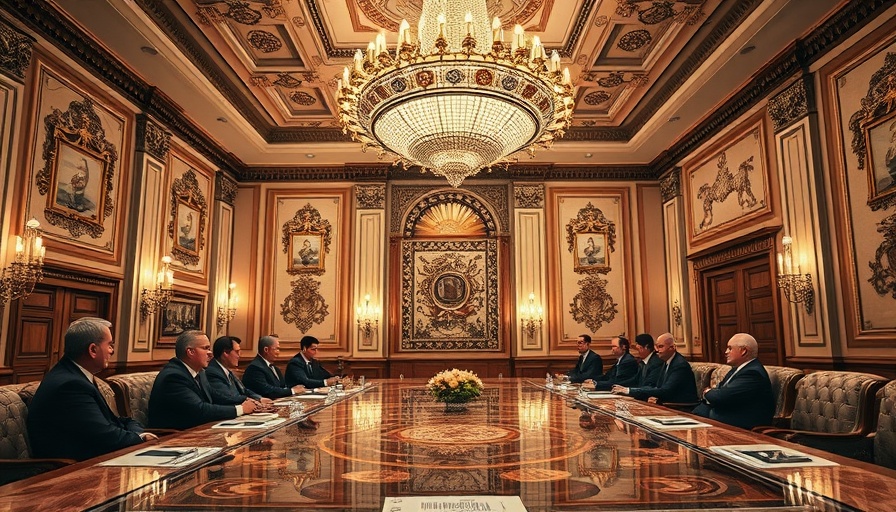
Understanding the Mar-a-Lago Accord: A New Era in Currency Dealings
Wall Street is abuzz with speculation surrounding what analysts have dubbed the "Mar-a-Lago Accord"—a potential currency agreement that aims to address the longstanding issues of a high U.S. dollar and its impact on American trade. Conceived during discussions of President Donald Trump's proposed trade reforms, this deal seeks to strengthen American manufacturing by altering international exchanges in favor of exporters. But what exactly would this involve, and how might it play out for import-export companies?
The Risks and Rewards of a Weaker Dollar
The central premise of the Mar-a-Lago Accord is to intentionally weaken the dollar against other currencies, making U.S. exports more competitive globally. This idea is rooted in modern economic sentiment that the dollar is currently overvalued. If the dollar's strength diminishes, American goods would become cheaper for foreign countries, ideally accelerating the export-driven growth that Trump envisions.
However, a weaker dollar brings its own set of challenges. The cost of imports would rise, potentially leading to inflation—a concern for consumers and importers alike. Furthermore, while the proposed deal might support American economics in the short term, it risks sending foreign investors looking for higher yields elsewhere, possibly destabilizing the financial market.
Drawing Comparisons: The Plaza Accord of 1985
The proposed Mar-a-Lago Accord calls to mind the Plaza Accord from 1985, where world leaders aimed to curb the dollar's strength amid economic turmoil. That agreement saw considerable success in weakening the dollar but eventually contributed to Japan's economic challenges during the 1990s. The lessons learned from past accords will be crucial for crafting a balanced approach in today's global economy.
Possible Implementation Strategies for a Mar-a-Lago Accord
For the Mar-a-Lago Accord to be successful, several strategies could be employed, such as:
- Domestic Consumption Increases: Encouraging trading partners to boost their domestic consumption rather than relying solely on U.S. exports could level the playing field.
- Foreign Exchange Interventions: Nations might mutually agree to intervene in the foreign-exchange market to adjust currency values appropriately.
- Centrist Monetary Policies: Creating frameworks for interest-rate adjustments can help alleviate imbalances, although modern central bank independence complicates these discussions.
How Import-Export Companies Can Prepare
For businesses in the import-export realm, understanding the Mar-a-Lago Accord’s implications is vital. Staying informed on foreign currency shifts and potential tariffs will be essential for navigating these changes successfully. Forward-looking risk management—considering various currency strategies—can protect your company from unforeseen financial turbulence as the economic landscape shifts.
The Path Forward: Winning the “Golden Age” of Trade
In conclusion, the Mar-a-Lago Accord could redefine trade relationships and economic strategies for American exporters but navigating the intricate web of international economics will require finesse and careful planning. As import-export companies brace for potential changes, proactive steps taken now can mean thriving during this new chapter instead of merely surviving.
It's essential to arm yourself with knowledge and strategy in these uncertain times. Reach out to industry experts or join local trade organizations to stay ahead of the curve!
 Add Row
Add Row  Add
Add 




Write A Comment